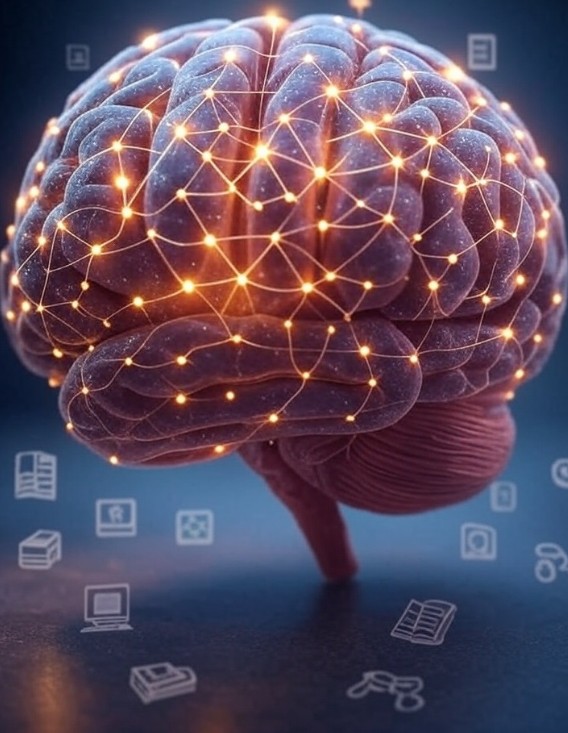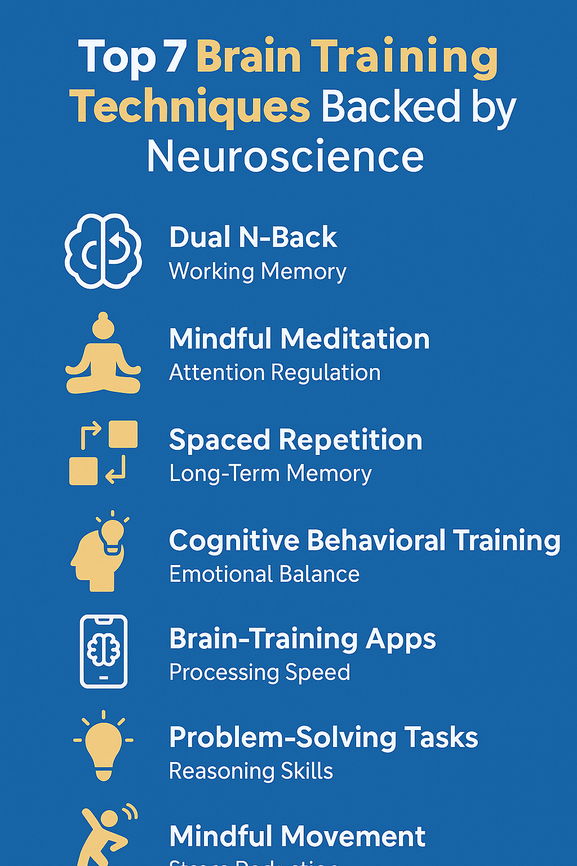
Brain Training: Building Cognitive Capacity and Better Mental Health
Table of Contents
We often take our brain’s performance for granted, until it falters. Quick thought, clear memory, and emotional calm seem natural in our early years. However, it is not guaranteed for life. Like muscles, the brain needs regular maintenance and exercise.
Failing to care for the brain can lead to slow thought, inadequate memory, and decreased concentration. On the other hand, brain training increases the ability of the brain to handle stress, react intelligently, and process information more efficiently.
Scientific studies confirm that brain exercise has neuroprotective impacts. It supports mental sharpness and enhances how we respond to the world. With the effort of a straightforward yet conscious sort, we can improve the operation of our brain, not just sustain it.
What Is Brain Training and How Does It Support Mental Fitness

Brain exercise is a set of precise activities that have been designed to increase cognitive function—the brain’s ability to process, store, and use information. Exercises will trigger various areas of the brain and cause development in areas that are in charge of attention, memory, logic, and control of emotions.
Neuroplasticity Basics
At the center of mind training is the idea of neuroplasticity. This refers to the brain’s capacity to reconstruct itself by creating new neural connections throughout life. Contrary to what was once believed, brain growth doesn’t cease in adulthood. It adjusts in response to how we employ it.
Picture someone with once keen analytical abilities in their professional life. With time, due to stress, multitasking, and aging, these abilities can feel sluggish. This isn’t simply because of age. This is because neural pathways are being underused or overwhelmed. With continued brain training, these pathways can be reinforced again, or new ones created.
For example, inventive creative activities like a new musical instrument or becoming fluent in another language spark new neural connections. Any mental challenge—a crossword or memory game—requires the brain to reset, react, and become stronger.
The reward? Heightened concentration, better decision-making, and enhanced emotional control. These are all elements of mental fitness—a state where your head is flexible and sharp.
In our distracted generation, devoting just a few minutes a day to training can have long-term consequences. The best part: it’s never too early or too late to start.
Effective Brain Training Techniques for Memory Improvement
Strengthening memory is about optimizing how we store, retrieve, and use information. Let’s check mind training methods that are backed by cognitive science and can be practiced in conscious environments to enhance long-term outcomes.
Meditation
Mindful meditation is not just a stress reducer. It facilitates memory improvement by enhancing concentration, eliminating mental clutter, and increasing gray matter in regions associated with memory and learning. All one needs is ten minutes a day to achieve a startling shift in mental focus and calm, especially when dealing with mentally demanding tasks.
Visualization Techniques
Transforming abstract data into mental images increases encoding and recall. Students, working adults, and even seniors learn and retain more with the help of visual cues attached to names, tasks, or commands. As an example, picturing a “to-do” list as objects in preassigned spaces helps memory recall in daily life.
The Mind Palace Technique
Also referred to as the method of loci, this ancient technique is one where information is associated with spaces visualized. Constructing a “palace” in the mind and putting things there mentally provides a solid foundation for memory improvement. With practice and repetition, anyone can memorize shopping lists or speech.
Brain Games and Logic Puzzles
Modern brain apps or old-fashioned board games involving number patterns, spatial configurations, or strategy exercises activate multiple mental skills all at once. These games keep the brain on its toes and speedy. They’re engaging, fun, and can teach the brain to discern patterns and make quicker choices in everyday situations.
Benefits of Brain Training for Lifelong Learning and Healthy Aging
Long-term gains of brain training extend well beyond memory. As we age, mental balance and equilibrium become essential in achieving independence, mental sharpness, and emotional stability.Moreover, scientific research indicates that physical exercise and cognitive function are interconnected. Thus, aerobic movement stimulates blood flow to the brain, while mental exercise supports flexibility and prevents mental deterioration.